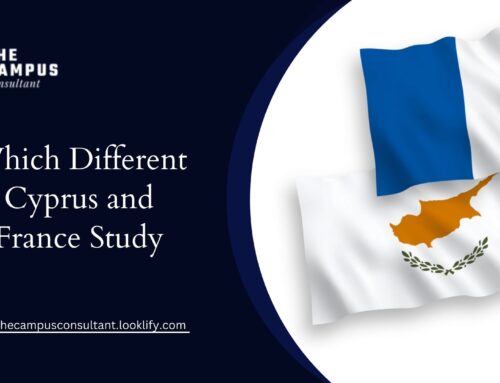Introduction
Welcome to the comprehensive guide on living costs in Australia for international students. We understand that as an international student, navigating through the financial aspects of studying abroad can be overwhelming. In this detailed exploration, we aim to provide you with a clear understanding of the various expenses associated with living in Australia. Embarking on a journey as an international student in Australia brings excitement and challenges, and understanding the nuances of living costs is essential for a seamless experience. In this concise guide, we unravel the intricacies of living costs in Australia for international students. From accommodation choices to daily expenses, health insurance, and part-time employment opportunities, we provide valuable insights to empower students with the knowledge needed to navigate the financial aspects of studying abroad. Join us on this exploration to ensure a well-informed and financially sound academic journey down under.
Accommodation Expenses
On-Campus Residences
For international students, on-campus residences are an attractive option. These accommodations not only foster a sense of community but also often include utilities, internet, and amenities in the overall cost. However, it’s crucial to note that on-campus options can vary significantly between universities. One of the standout benefits of on-campus living is the sense of community it fosters. Being surrounded by fellow students creates a supportive environment, offering opportunities to forge friendships and navigate the challenges of studying abroad together. On-campus residences often come equipped with inclusive amenities. From Wi-Fi connectivity to utilities like electricity and water, these accommodations strive to simplify student life by encompassing essential services within the overall cost.
Off-Campus Housing
Opting for off-campus housing gives you the flexibility to explore different neighborhoods and potentially find more cost-effective solutions. Many students choose shared apartments or houses, splitting the rent and utilities to ease the financial burden. Off-campus housing opens doors to a myriad of options, allowing students to choose accommodations that align with their preferences and budget. Shared apartments, private rentals, and house-sharing arrangements are just a few of the possibilities, offering a diverse range of living experiences. While off-campus housing provides flexibility, it’s essential to consider the financial implications. Rent, utilities, and other expenses can vary based on location and housing type. Conducting thorough research and budgeting effectively are crucial steps in ensuring a financially sustainable living arrangement.
Daily Expenses
Grocery Shopping Tips
Navigating Australian supermarkets can be a cultural experience in itself. To keep your grocery budget in check, focus on local produce and store-brand items. Additionally, planning your meals in advance and buying in bulk can save you both time and money. Australia boasts a rich array of fresh and local produce. Embracing these options not only supports local farmers but also ensures that you enjoy high-quality ingredients. Seasonal fruits and vegetables often come at a more affordable price and are bursting with flavor. When perusing the aisles, consider exploring store brands. These products, often more budget-friendly than name brands, can offer excellent quality. From pantry staples to personal care items, opting for store brands can significantly contribute to savings without compromising on quality.
Transportation Costs
Australia boasts an extensive public transportation system. Investing in a student concession card can significantly reduce your commuting expenses. Alternatively, some cities are bike-friendly, providing a healthy and economical mode of transportation. Australia boasts an extensive and efficient public transportation system, making it an excellent choice for budget-conscious students. Consider investing in a student concession card, which provides significant discounts on bus, train, and tram fares. This not only reduces your commuting expenses but also contributes to sustainable and eco-friendly travel. Many Australian cities prioritize cycling as a viable and cost-effective mode of transportation. Investing in a bike offers not only a healthy and environmentally friendly way to navigate the city but also substantial savings compared to other modes of transport. Explore dedicated bike lanes and enjoy the scenic routes that some cities offer for cyclists.
Health Insurance
Understanding OSHC
This insurance ensures that you have access to medical services during your stay. While it adds to your expenses, having OSHC is a non-negotiable aspect of student life down under. From the moment you step foot in Australia, obtaining OSHC is a non-negotiable requirement. It is essential for securing your student visa and ensuring that you have access to medical services throughout your stay. This comprehensive health insurance is designed to cover a range of medical expenses, offering peace of mind to students and their families. OSHC provides coverage for a wide array of medical services, including doctor visits, hospital stays, prescription medications, and emergency ambulance services. Understanding the extent of coverage ensures that you can access the necessary healthcare without encountering unexpected financial burdens.
Entertainment and Recreation
Budget-Friendly Leisure Activities
Balancing studies and leisure is essential for a well-rounded student life. Fortunately, Australia offers a plethora of free or budget-friendly recreational options. From exploring national parks to attending cultural events, there’s no shortage of activities that won’t break the bank. Australia’s natural beauty offers a plethora of budget-friendly leisure activities. From hiking trails to serene beaches and picturesque parks, immersing yourself in nature costs nothing. Pack a picnic, lace up your hiking boots, and embark on an adventure in the breathtaking landscapes that Australia has to offer. Cities across Australia host an array of cultural events, many of which are free of charge. Keep an eye on local event calendars for art exhibitions, music festivals, and community gatherings. These events not only provide entertainment but also offer a chance to connect with the diverse cultural tapestry of the country.
Part-Time Employment Opportunities
Navigating the Job Market
Securing a part-time job not only provides additional income but also offers valuable work experience. Many universities have career services that can assist you in finding suitable employment opportunities. Before delving into the job market, familiarize yourself with the visa regulations governing international students. Most student visas in Australia permit a certain number of work hours per week during the academic semester and unrestricted hours during scheduled breaks. Ensure compliance with these regulations to maintain both legal status and academic performance. Universities in Australia often provide dedicated career services to assist students in finding part-time employment. Take advantage of these resources, including career counseling, resume workshops, and job fairs. University career services can connect you with potential employers and provide valuable guidance on navigating the local job market.
Summary
In summary, understanding the intricacies of living costs in Australia for international students is paramount for a smooth and successful academic journey. From accommodation choices to daily expenses and health insurance, we’ve covered the essentials to empower you with the knowledge needed to make informed decisions.







[…] Contact us today Previous […]